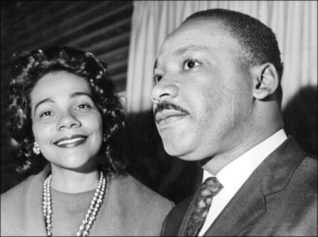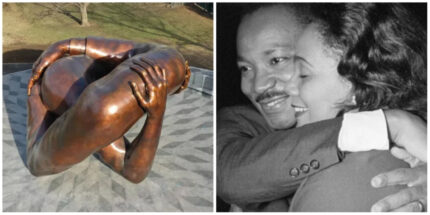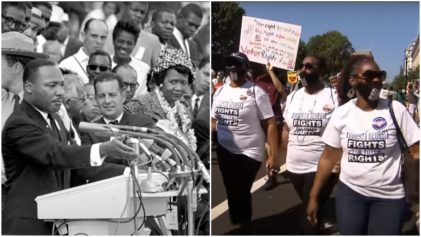Civil rights activist and Martin Luther King Jr.’s close confidant C.T. Vivian died in the early morning of July 17 at his home in Atlanta. He was 95.
Kira Vivian and Denise Morse, two of Vivian’s daughters, confirmed the death, The New York Times reported. Morse told the news outlet Vivian had been in hospice care.
Born Cordy Tindell Vivian on July 30, 1924, in Howard County, Missouri, Vivian was the only child of Robert Cordie and Euzetta Tindell Vivian, according to The Atlanta Journal-Constitution.
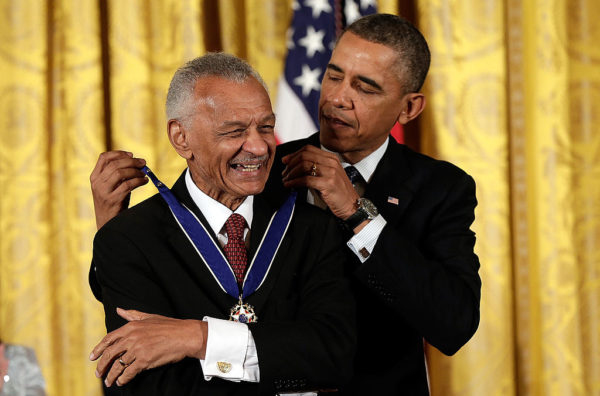
who awarded him the Presidential Medal of Freedom in the East Room at the White House on November 20, 2013, in Washington, D.C. The Presidential Medal of Freedom is the nation’s highest civilian honor, presented to individuals who
have made meritorious contributions to the security or national interests of the United States, to world peace, or to
cultural or other significant public or private endeavors. (Photo by Win McNamee/Getty Images)
Following his parents’ divorce, Vivian spent most of his youth in Macomb, Illinois, a town with a small Black population, according to the AJC. “I was treated so very well in Macomb,” Vivian told the newspaper in a previous interview. “In many ways, Macomb made me. I was well accepted. But it is all connected. I was preparing to be involved to be in civil rights without even knowing it.”
Vivian told the paper racism in Macomb was “always there on the edge,” adding his friends didn’t invite him to social functions and parties because their parents wouldn’t allow it. “I don’t remember a time that I didn’t understand the Black situation, (that) the dilemma was not real to me,” Vivian told the paper in 2006.
After graduating high school and briefly attending Western Illinois University, Vivian moved to Peoria, Illinois, where he worked as the assistant boy’s director for the Carver Community Center, the AJC reported. While there, in 1947 and 1948, Vivian participated in his first protests — sit-ins at a restaurant to protest its policy of not serving Black people.
“All of us knew, from the beginning of our lives we knew, that we wanted to get rid of racism,” Vivian told the AJC. “We were all ready for that, and I wanted to be involved. It was not like a calling to the ministry, but a preparation for it.”
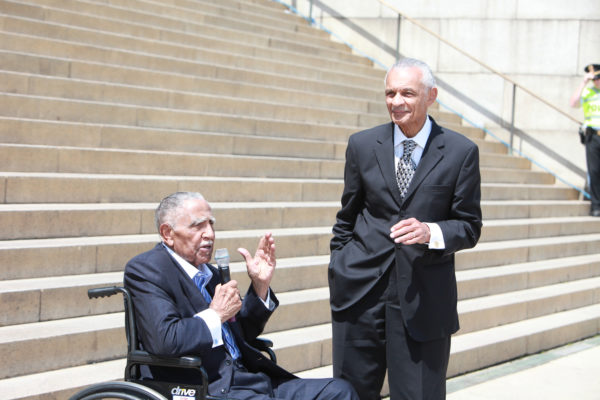
In 1952, Vivian met Octavia Geans, the author of “Coretta” (1970), the first biography of Dr. King’s wife, Coretta Scott King, the New York Times reported. They married a year later on Geans’ birthday, Vivian told the AJC. They were married for nearly 60 years before she died in 2011.
Shortly after the two married, Vivian decided to join the ministry and began studying at the American Baptist Theological Seminary in Nashville, the AJC reported. In 1957, while studying at the college, Vivian attended a local church service where he first heard Dr. King speak on nonviolence and well before his relationship with King grew close, according to The New York Times.
During his time in Nashville, Vivian became more involved with the Student Nonviolent Coordinating Committee, meeting Diane Nash, Bernard LaFayette and John Lewis who all became key figures in the civil rights movement.
As a member of SNCC, Vivian and other organizers continued the Freedom Rides, which initially began in 1961. The rides led to his arrest and imprisonment at Parchman Farm prison in Mississippi, the AJC reported. The arrest signaled the beginning of Vivian’s national work and subsequent leadership in the civil rights movement.
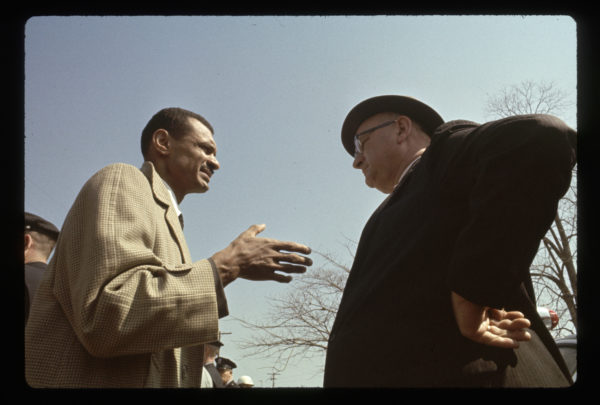
After a year as a pastor in Chattanooga, Tennessee, Vivian helped organize Tennessee’s involvement in the 1963 March on Washington and was invited to join Dr. King’s staff, the New York Times reported. That same year, Vivian became the national director for the Southern Christian Leadership Conference and joined King on protests and voter registration drives, including one in 1965 in Selma, Alabama, where he had a violent encounter with Dallas County, Alabama, Sheriff Jim Clark – a noted segregationist whom Vivian and other activists urged to allow Black people to register to vote.
Clark refused, punching Vivian square in the mouth, the AJC reported. Vivian was jailed and had to get 11 stitches in his mouth.
“I had to show that I wasn’t afraid,” Vivian told the AJC in a 2013 interview. “I got down on my knees and said, ‘Thank you, Lord’ — not because I was alive, but because I had done what I should do, and I’d done it well. Even when I got knocked down, I stood back up. I’d stood up to the powers that be, and I did it nonviolently.”
In the years following that encounter, Vivian persistently continued his work in the civil rights movement becoming director of the Urban Training Center for Christian Mission in Chicago in 1966. In 1972, he became dean of the Shaw University Divinity School in Raleigh, N.C.
He later founded the Black Action Strategies and Information Center in Atlanta aimed at fostering workplace race relations. He was also a co-founder of the National Anti-Klan Network, which monitored hate groups. The group was later renamed the Center for Democratic Renewal to reflect broader educational goals, according to the paper. Vivian also became deputy director for clergy in the 1984 presidential campaign of the Rev. Jesse Jackson, and in 1987, appeared on “Eyes on the Prize,” a 14-part PBS documentary on the civil rights era. He was later the focus of a PBS special titled “The Healing Ministry of Dr. C.T. Vivian.”
Apart from his civil rights work, Vivian spoke fondly of VISION, a program he founded in Alabama aimed at helping low-income students prepare for college, according to the AJC.
Prominent civic leaders, including the children of Martin Luther King Jr., took to social media Friday morning to share their condolences and memories of Vivian.
“Reverend C.T. Vivian was a strategic nonviolent leader, a brilliant mind who believed that soul force could overpower physical force. I’m thankful for his legacy of service and influence, including in my father’s life,” said Bernice King in a tweet.
Her brother, Martin Luther King III, echoed those sentiments: “I am sad to learn of the passing of Rev. C.T. Vivian, who worked with my father during the civil rights era, and continued the fight throughout his life. He also worked with my wife Arndrea (Waters King) at the Center for Democratic Renewal. His voice and leadership will be greatly missed.”
“The passing of C.T. Vivian should cause us all to pause and celebrate the life and sacrifice of this giant,” Al Sharpton wrote on Twitter. “He made this nation and world a better place. RIP, my friend.”
Vivian’s civil rights work earned him the Presidential Medal of Freedom, the nation’s highest civilian honor, from U.S. President Barack Obama in 2013.
He is survived by four daughters and two sons. Another son, Cordy Jr., died in 2010, The New York Times reported.
Services for Vivian have not been announced.
